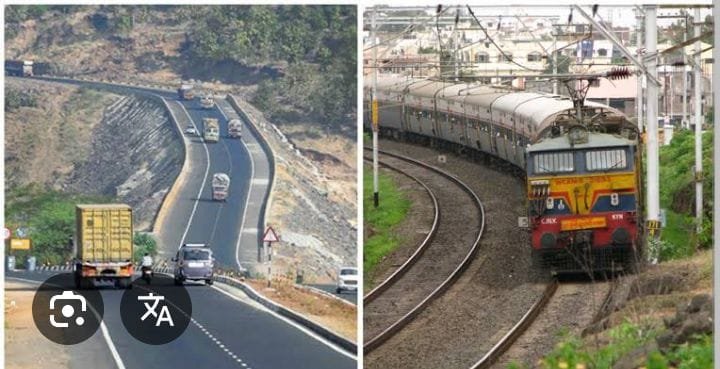Nigeria’s Transport Revolution: A 4-Year State of Emergency for Jobs, Growth & Security
Abuja, Nigeria – July 2025: A bold, comprehensive plan is being proposed to tackle Nigeria’s critical transportation infrastructure deficit head-on, declaring a 4-Year State of Emergency on Land, Rail, and Water Transportation. This ambitious initiative aims not just to repair roads and rails, but to ignite widespread economic activity, generate long-term employment across all 700+ Local Government Areas (LGAs), and significantly enhance national security.
Beyond Phases: A Nationwide Mobilization
Unlike traditional piecemeal approaches, this plan mandates simultaneous execution across the entire nation. Leveraging the proven efficiency and coordination model of Election Situation Rooms, work will commence at once on revitalizing existing federal and interstate road networks, rail corridors connecting all 36 states, and functional waterways along coastal and major riverine areas. This is not about opening new routes, but strategically revamping critical existing arteries.
The Nerve Center: Tech-Driven, Youth-Led Oversight
Central to the plan’s success is a robust 24/7 National Transport Infrastructure Management Centre. This cutting-edge hub will deploy:
Real-time Satellite Imagery: For macro-level progress tracking and issue identification.
Drone Surveillance Fleets: For detailed, on-demand inspections of sites across the country.
Daily Visual Reporting: Mandatory photo/video updates from all project sites for granular verification.
Crucially, this centre will be predominantly manned by a new generation of Nigerian professionals – males and females aged 24-35 – creating significant skilled employment and fostering technological expertise.
Innovative Financing: Unlocking Private Capital, Protecting the Treasury
A revolutionary Public-Private Partnership (PPP) financing model is proposed to ensure sustainability and minimize strain on the Federal Government (FG):

- FG Backing: Provides a financial guarantee and only 15% cash backing for projects.
- Private Sector Ingenuity: Brings creative financing models designed to remove 80% of the cash burden from the FG treasury. Mechanisms include:
Extended Tax Breaks: Incentivizing long-term private investment.
Debt Restructuring: Private entities buying discounted international debts held by Nigerian banks/finance institutions, freeing up domestic capital.
Retail Investment: Selling securitized project debt (e.g., infrastructure bonds) directly to the Nigerian public, fostering national ownership.
This model requires 100% unwavering political backing from the Presidency and Governors, leveraging influence and commitment far exceeding the minimal cash contribution.
Accountability & Regional Equity
Payment on Performance: Monthly disbursements (public and private) will be strictly tied to independently verified, confirmable project execution.
Regional Commissions: Representatives from existing Regional Development Commissions (NWDC, NEDC, SWDC, SEDC, etc.) will be co-opted to ensure equitable resource allocation and project prioritization across the six geopolitical zones.
Redirected Resources: The plan proposes reallocating funds from programs like the conditional cash transfers (e.g., the proposed 8,000 Naira scheme) towards this high-impact, job-creating infrastructure drive.
Transformative Benefits: Jobs, Security, and a Stronger Naira
The projected outcomes are far-reaching:
Massive Employment: Direct and indirect jobs created in every single LGA for Nigerians of all skill levels – from engineers and tech operators in the Management Centre, to construction workers, logistics personnel, and support staff for grassroots nano-enterprises servicing the projects.
Enhanced Security: Massive simultaneous worksites nationwide will significantly disrupt criminal logistics. Furthermore, the drone/surveillance infrastructure will be converted post-emergency into a permanent National Road & Rail Security Monitoring Network, drastically reducing banditry, armed robbery, and kidnapping.
Economic Stimulus & Value Chains: Local assembly of machinery, demand for materials, and improved logistics will stimulate domestic industries, develop robust value chains, and strengthen the Naira.
Efficiency Gains: Revitalized rail and waterways will decongest roads and lower transport costs.
Foreign Investment: A clear, large-scale, tech-enabled plan will attract significant foreign technical partners and investors.
Global Precedent: Proof of Concept
Nigeria’s plan draws inspiration from successful rapid infrastructure transformations globally:
China: Its massive, simultaneous national highway and high-speed rail network expansion over recent decades, heavily utilizing PPP models and central coordination.
Singapore: Continuous, tech-intensive development and maintenance of its land and port infrastructure under centralized planning (Land Transport Authority, Maritime Port Authority).
Ethiopia: Aggressive, centrally-driven expansion of its national road network and the Addis Ababa Light Rail, significantly boosting economic connectivity.
Post-WWII Europe (Marshall Plan): Large-scale, coordinated reconstruction of transport infrastructure across multiple nations within a defined timeframe.
Conclusion: An Emergency Worth Declaring
This 4-Year State of Emergency on Transportation represents a paradigm shift. It moves beyond incremental repairs to a holistic, nationwide mobilization leveraging technology, innovative finance, and the energy of Nigeria’s youth. By focusing on existing critical networks, ensuring ruthless accountability, and prioritizing widespread job creation and security gains, this plan offers a concrete pathway to unlock Nigeria’s stalled economic potential and build a foundation for lasting prosperity and safety. The time for robust, simultaneous action is now.
Dr Chukwuemeka Ifegwu Eke.
University of Abuja
And
Lt. Musa Safianu
Nigerian Army







